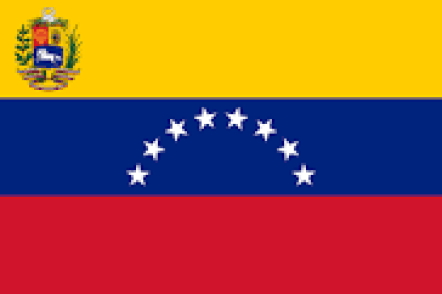
As Venezuelan dictator Nicolás Maduro celebrates his 10th year in office this week, a reality check shows that his presidency has been much more disastrous than people think.
By AOL – Andrés Oppenheimer
Mar 8, 2023
Maduro, who took office on March 8, 2013, after the death of his predecessor, Hugo Chávez, has performed an economic miracle in reverse: He has turned what used to be one of Latin America’s richest countries into the poorest one, alongside Haiti.
To see the magnitude of Venezuela’s economic and social collapse, despite the fact that the country has the world’s biggest oil reserves, consider:
? Venezuela’s gross domestic product has plummeted from $350 billion in 2013 to $60 billion today, according to the Caracas-based Ecoanalítica economic consulting firm. That’s an almost 83% drop in the country’s economic activity in a decade.
? Venezuela’s poverty rate has soared from 40% of the population in 2013 to 94% today, according to the ENCOVI poll of Venezuelan households conducted by the country’s three most respected universities: Andrés Bello Catholic University, Central University and Simón Bolívar University. The poll’s organizers say Venezuela surpassed Haiti in 2020 as Latin America’s poorest country.
? Venezuela’s annual inflation rate has risen to nearly 350% this year from 56% in 2013, according to Ecoanalítica. Public servants make $14 a month, one of the lowest wages in the world, the Reuters news service reported earlier this month.
? Venezuela’s oil production, which accounts for almost its entire legal foreign income, has plummeted from about 2.5 million barrels a day in 2013 to about 690,000 barrels a day this year, according to Organization of Petroleum Exporting Countries figures.
? Drug trafficking, illicit oil mining and other illegal activities account for 20% of Venezuela’s gross domestic product, says Transparency Venezuela, an anti-corruption think tank.
? More than 8,200 Venezuelans died in extrajudicial killings by Maduro’s death squads between 2015 and 2017, according to Amnesty International. Maduro is under investigation for crimes against humanity by the International Criminal Court.
? More than 7.2 million Venezuelans have fled the country during the past decade, according to United Nations estimates. That’s the biggest mass exodus in Latin America’s history.
Asdrúbal Oliveros, head of Ecoanalítica, told me that, “What has happened in Venezuela over the past 10 years is an unprecedented case of economic destruction. Nothing like this has been seen in any country that has not gone through a civil war or a natural disaster.”
When I compiled these figures, I saw that it’s no wonder Maduro does not allow free elections: He would never win.
His only way of staying in power is through sheer repression, driving millions of unhappy people to leave the country. That leaves him with fewer mouths to feed and allows him to get rid of potential opposition activists. It also allows him to benefit from billions of dollars sent to the country through family remittances from Venezuelans living abroad.
The only way to solve Venezuela’s humanitarian disaster would be an agreement between Maduro and the opposition to hold free elections, which would restore the rule of law and encourage investments, Oliveros told me. But, unfortunately, he said he doesn’t see that happening anytime soon.
I’m pessimistic, too. Maduro has no incentive to negotiate a free election that he would almost certainly lose. On the contrary, recent developments, including friendlier ties with several of his Latin American neighbors, are likely to make him even more reluctant to make democratic concessions.
The left-of-center governments of Colombia, Brazil, Mexico and Argentina seem to have quickly forgotten about Maduro’s human-rights atrocities. Colombia’s new president, Gustavo Petro, recently restored diplomatic and commercial ties with Venezuela and posed for smiling pictures with Maduro.
And Venezuela’s opposition recently committed something akin to political suicide when it dismantled the interim presidency formerly held by Juan Guaidó. The former head of Venezuela’s opposition-controlled National Assembly was at one point recognized by more than 50 countries as Venezuela’s legitimate leader.
Unless the opposition corrects its mistake and solidly unites behind a single candidate for the 2024 elections, it will be hard for it to re-energize Venezuelan voters and to regain the diplomatic and political support from world democracies.
Barring that, political fatigue, repression and submission will prevail, as has happened in Cuba, and Venezuela will continue going downhill for many years, with more deaths and millions more refugees.
…
Read More: AOL – Venezuela’s dictator celebrates his 10th year in power — as his country plummets to new lows | Opinion
…

